
Carpal tunnel syndrome was linked to wild-type transthyretin amyloidosis in new research, highlighting the importance of early diagnosis for better heart failure outcomes.

Carpal tunnel syndrome was linked to wild-type transthyretin amyloidosis in new research, highlighting the importance of early diagnosis for better heart failure outcomes.
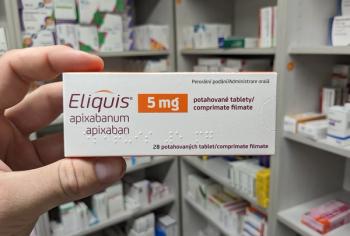
Apixaban would still cost patients 9 times more through the Eliquis 360 Support program than with commercial insurance.

The new Blueprint for Patient-Centered Value Research offers a roadmap for embedding patient voices throughout every stage of the research journey to foster more equitable, transparent, and responsive health care systems.

Sanjay Doddamani, MD, MBA, a former senior advisor to the Center for Medicare and Medicaid Innovation, and internist and cardiologist by training, explains how the Wasteful and Inappropriate Service Reduction (WISeR) Model hopes to work, and addresses concerns about delays and denials from revamped prior authorization processes.

Tabby Khan, MD, MPH, senior director of Analytics at Komodo Health, calls for increased lung cancer screening measures and criteria to address underreported, at-risk populations like AAPI women.

Imetelstat (Rytelo; Geron) significantly improved and sustained health-related quality of life in patients with lower-risk myelodysplastic syndromes (MDS), with benefits linked directly to the drug rather than patient characteristics.

Mantle cell lymphoma treatment offers options if patients relapse after CAR T-cell therapy, from bispecific antibodies, antibody drug conjugates, and other emerging therapies.

Despite offering significant protection against severe COVID-19, patients with cancer, a high-risk group, showed low uptake of booster vaccinations.

Because patients do not always associate their symptoms with dry eye, they often turn to treatments that do not work, says Nicole Bajic, MD.

A new review explores the complexities of cow's milk allergy in breastfed infants, including symptoms, diagnosis challenges, and the impact of maternal diet.

The newly approved linvoseltamab (Lynozyfic; Regeneron) has a manageable safety profile, along with a patient-friendly dosing schedule that includes intravenous administration, step-up dosing, and de-escalation to monthly maintenance.

Pediatric patients with multiple sclerosis (MS) face significant challenges transitioning to adult care, risking treatment delays and long-term health outcomes.

New research identifies diabetes as an independent predictor of major adverse cardiovascular events in patients with both psoriasis and coronary artery disease.

The phase 3 IMerge trial (NCT02598661) evaluated how treatment with imetelstat impacts health-related quality of life in patients with lower-risk myelodysplastic syndromes (MDS), according to María Díez Campelo, MD, PhD.

Patients and providers find the Colon Age tool acceptable and useful for individualizing colorectal cancer risk and encouraging earlier screening.

Access to obstetric care declined across the US, especially in rural areas, with more than 7 states seeing more than 25% of hospitals lose obstetric services from 2010 to 2022.

New research demonstrates a swift directional relationship between food insecurity and increased anxiety and depression, highlighting the urgent need for interventions to improve mental health.

Multiple medications and treatments can be used to address dry eye and dry eye disease in patients, says Karen Fernandez, MD.
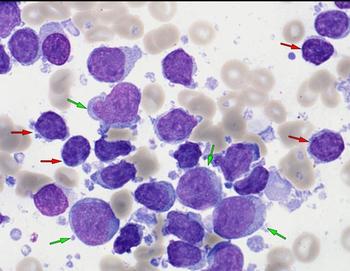
Real-world analysis reveals that undetectable CD20 expression worsens outcomes for patients treated with epcoritamab and glofitamab bispecific antibodies for their diffuse large B-cell lymphoma (DLBCL).

Estrogen-progestin hormone therapy used to manage menopausal symptoms and other women’s health conditions is associated with a higher risk of developing luminal-like breast cancer subtypes and other subtypes.
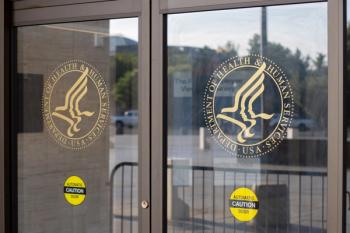
Adam Colborn, JD, associate vice president of congressional affairs at AMCP, shares insights on the impact of the Most Favored Nation drug pricing order when it comes to access, affordability, and innovations in US health care.
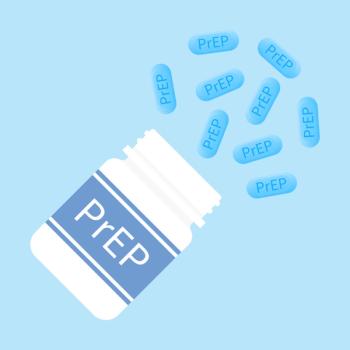
New data demonstrated that long-acting cabotegravir was preferable to daily dolutegravir/lamivudine in treatment-naive people living with HIV.

Three patient outcomes were measured in this new study: time to onset of ocular-related myasthenia gravis, Activities of Daily Living response, and Minimal Symptom Expression.

Chronic rhinosinusitis with nasal polyps increases the likelihood of developing coexisting conditions, such as asthma, underscoring the need for more effective, comprehensive treatments.

Risk factors can vary for dry eye, a condition that affects the layers of tear film on the eye, says Nicole Bajic, MD.
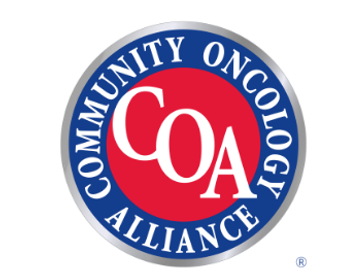
CMS proposes the 2026 Physician Fee Schedule (PFS), addressing payment disparities in oncology, but the community oncology community warns of financial threats from the Inflation Reduction Act. Updates reflect late Tuesday release of the proposed 2026 schedule for the Hospital Outpatient Prospective Payment System.

The CMS Bundled Payment for Care Improvement (BPCI) Advanced model was successful at reducing spending for outpatient procedures for patients receiving back and neck except spinal fusion treatments or procedures.

Robert Kratzke, MD, urged insurance providers to prioritize fast biomarker testing in non–small cell lung cancer, saying it’s both cost-effective and life-saving.

Survival models using electronic health record data show promise in predicting progression to proliferative diabetic retinopathy in patients with type 2 diabetes.

Jayme Ambrose, DNP, RN, CCM, of Adobe Population Health, explores how addressing social determinants of health transforms maternal care delivery, reduces disparities, and improves outcomes for mothers and infants.

259 Prospect Plains Rd, Bldg H
Cranbury, NJ 08512
© 2025 MJH Life Sciences®
All rights reserved.
